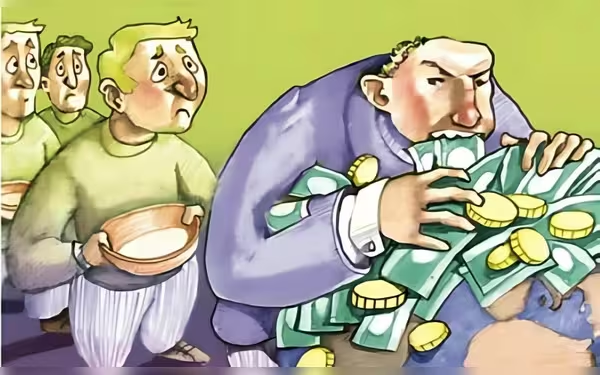Saturday, November 16, 2024 03:18 PM
Taxation Dilemma: Government Faces Tough Choices Amid IMF Pressure
- Government debates raising taxes or finding alternative revenue.
- Mr. Langrial optimistic about adhering to IMF guidelines.
- Excessive taxation could hinder economic growth.
 Image Credits: dawn.com
Image Credits: dawn.comThe Pakistani government faces tough choices on taxation amid IMF pressure, balancing revenue needs with citizens' economic realities.
The ongoing debate surrounding taxation in Pakistan has reached a critical juncture as the government grapples with the implications of its fiscal policies. With the International Monetary Fund (IMF) setting stringent targets for fiscal deficits, the question of whether to raise existing tax rates or introduce new ones looms large. This dilemma is not just a matter of numbers; it affects the livelihoods of millions of citizens and the overall economic health of the nation.
Mr. Langrial, a prominent figure in the economic landscape, has expressed optimism about the government's ability to adhere to the IMF's guidelines without resorting to increased taxation. He believes that alternative proposals can be implemented to generate the necessary revenue. This perspective offers a glimmer of hope for taxpayers who are already burdened by high costs of living and economic instability.
However, the optimism expressed by Mr. Langrial is met with skepticism from various economic analysts. Many experts argue that, despite the potential for alternative revenue measures, the government may still need to consider additional taxation to meet the fiscal deficit targets set by the IMF. This raises a crucial question: Can the government balance the need for revenue with the economic realities faced by its citizens?
As the government navigates these challenging waters, it is essential to consider the broader implications of its decisions. Taxation is a double-edged sword; while it is necessary for funding public services and infrastructure, excessive taxation can stifle economic growth and burden the average citizen. The government must tread carefully, weighing the immediate financial needs against the long-term economic health of the country.
The choices ahead for the government are indeed tough. The path it chooses will not only impact fiscal stability but also the everyday lives of the people. As citizens, it is crucial to stay informed and engaged in these discussions, as the outcomes will shape the economic landscape of Pakistan for years to come. The balance between taxation and economic growth is delicate, and the decisions made today will echo in the future.













